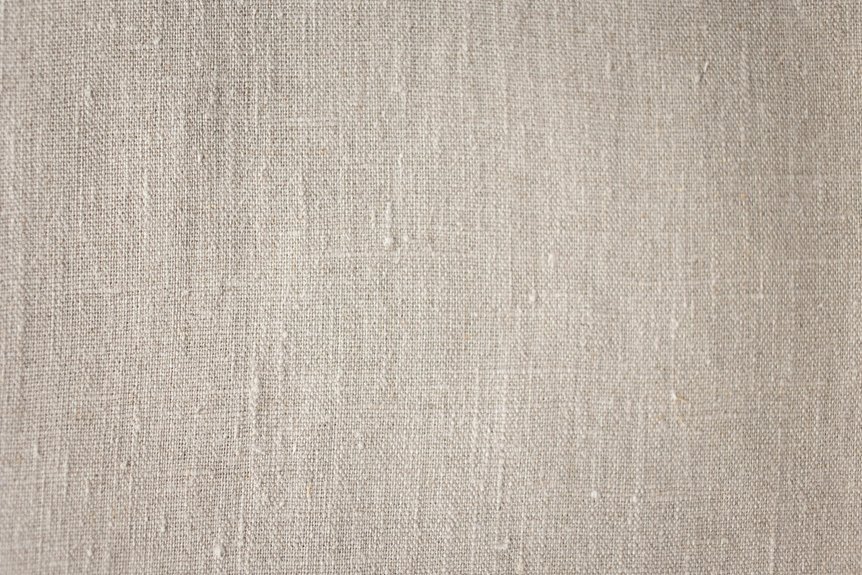Hemp insulation is a sustainable material that significantly reduces energy consumption and carbon emissions, owing to its capacity to absorb CO₂ during its growth. It provides excellent thermal performance while boasting breathable properties that help regulate indoor humidity and mitigate the risk of mould.
Naturally resistant to pests and mould, hemp insulation contains no harmful chemicals, thus promoting healthier indoor air quality. Its durability and versatility position it as a prudent choice for environmentally conscious building projects. With numerous advantages to discover, hemp insulation stands out as a leading option for those seeking sustainable building solutions.
Environmental Benefits and Sustainability
Hemp insulation provides considerable environmental advantages by promoting sustainability and minimising the impact of building materials on our planet. During its growth, one acre of hemp captures a substantial amount of CO₂, storing this carbon within the plant biomass utilised for insulation.
This type of insulation boasts a net-negative global warming potential, meaning it absorbs more CO₂ than it emits throughout its cultivation, processing, and disposal. Hemp acts as a significant carbon sink by absorbing atmospheric CO₂, which further enhances its environmental benefits.
Hempcrete, a popular form of this insulation, can absorb a notable quantity of CO₂ over its lifespan, aiding in offsetting emissions from more harmful materials such as cement.
The cultivation of hemp requires minimal water, pesticides, and fertilisers, and it thrives on marginal lands, which helps alleviate pressure on food crops.
Moreover, hemp is biodegradable and environmentally friendly to produce, supporting sustainable lifecycle practices, making it an excellent choice for those who prioritise eco-conscious building solutions.
Its versatility and low environmental impact make hemp insulation a forward-thinking option for modern construction.
Thermal Performance and Energy Efficiency
Hemp insulation presents significant benefits in terms of thermal performance, primarily due to its natural structure and composition. It boasts low thermal conductivity, which provides effective insulation, particularly when dry. A hempcrete wall of suitable thickness can achieve impressive U-values, aligning with UK building standards. In contrast to synthetic insulation materials, hemp typically requires a greater thickness to achieve comparable levels of resistance. While moisture can slightly increase thermal conductivity, reducing its effectiveness when wet, hempcrete’s microscopic air pockets and spaces trap warmth, further enhancing its insulating properties. Moreover, the thermal mass of hempcrete plays a vital role in regulating indoor temperatures. By absorbing and releasing heat, it helps maintain a comfortable living environment throughout the year. Research indicates that hemp-based insulation also has a low embodied energy, which adds to its sustainability benefits. This unique combination of features contributes to reduced heating and cooling demands, making hemp insulation an energy-efficient option for those seeking a sustainable and comfortable home.
Moisture Management and Durability
Moisture management is a vital characteristic of hemp insulation, as it possesses the ability to absorb and release moisture without compromising its insulating efficacy. This natural capacity aids in maintaining healthy indoor humidity levels and prevents excessive moisture accumulation, which can lead to mould growth. Hemp’s hygroscopic properties enable it to absorb a significant proportion of its weight in moisture while still functioning effectively. Furthermore, its breathability enhances moisture regulation, making it particularly suited for humid climates such as those found in the Gulf South and areas susceptible to heavy rainfall. Hemp insulation is resistant to mould growth due to its proficient moisture management capabilities. Additionally, hemp’s natural antimicrobial properties further inhibit mold and bacteria growth within the insulation material. The durability of hemp insulation ensures that it retains its shape and insulating properties over time, resisting settling and degradation. This enduring performance, coupled with minimal maintenance requirements, positions hemp as a robust and dependable option for sustainable building projects.
Indoor Air Quality and Health Advantages
Indoor air quality can greatly benefit from natural insulation materials that are free from harmful chemicals and toxins.
Hemp insulation contains no volatile organic compounds (VOCs), formaldehyde, or synthetic binders, which means it doesn’t release pollutants into indoor spaces. This makes it a safer option for sensitive groups, such as those with allergies, asthma, or chemical sensitivities.
Hemp boasts natural resistance to mould, bacteria, and pests, further reducing biological contaminants and enhancing indoor air quality. It also has the ability to trap and bind air pollutants, contributing to improved air purity.
Additionally, hemp insulation is hygroscopic, which helps to regulate humidity levels, thus preventing mould and dust mites from proliferating. Its ability to absorb excess moisture is due to its porous structure, which helps maintain a balanced indoor environment.
Its low-emission, plant-based production and rapid renewability render it an eco-friendly choice that fosters healthier indoor environments for all.
Conclusion
Hemp insulation provides a multitude of advantages, including enhanced sustainability, energy efficiency, and effective moisture control. As a renewable resource, it significantly reduces environmental impact while offering excellent thermal performance. Furthermore, hemp insulation contributes to improved indoor air quality by resisting mould and pests.
This makes it an ideal choice for those in the UK who are looking for an eco-friendly and durable alternative for their building and insulation requirements. Its numerous benefits have led to increased popularity in sustainable construction practices, positioning hemp insulation as a practical solution for environmentally conscious builders and homeowners alike.
Overall, choosing hemp insulation aligns with a commitment to sustainability, making it a wise investment for the future.

